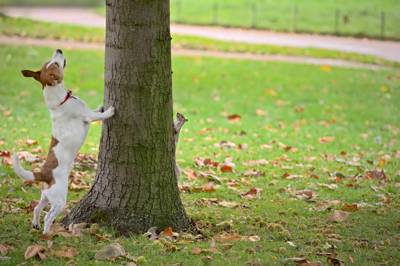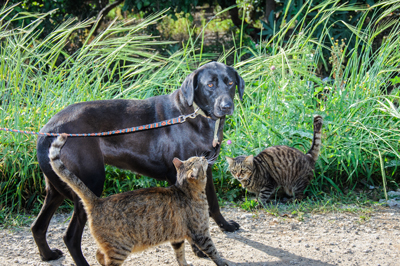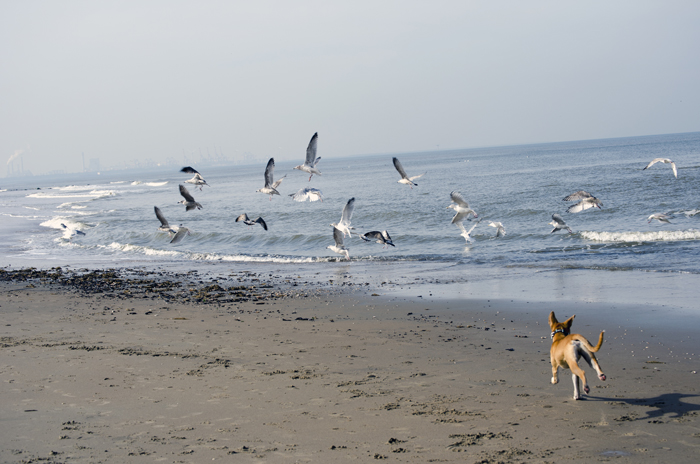How to stop your dog from pursuing (and terrorizing) other animals.

© photomic/Adobe Stock
It’s only natural for dogs to chase other animals. Whether it’s cats, chickens, horses or rabbits, chasing is an instinctive behavior in canines. However, just because it’s natural for your dog doesn’t mean it’s okay. Chasing other animals can be dangerous, both for the object of the chasing and your dog.
If you’re wondering why you shouldn’t let your dog chase other animals, consider these points:
- Your dog can hurt or kill the other animal: If your dog is chasing someone else’s pet, he is severely stressing that other animal. If he catches the animal, he might seriously injure it or kill it. It’s inhumane to allow your dog to harm another animal, sometimes it’s even illegal, depending on where you live.
- Your dog learns a bad habit: Allowing or encouraging your dog to chase wildlife or small animals is not only harmful to the animal he’s chasing, but it also teaches your dog that it’s okay to harass other creatures. It’s best to discourage any kind of aggression toward other animals.
- Your dog could get hurt: If your dog catches a cat, raccoon or any other small animal, that animal will fight for its life. The result is that your dog may be scratched or bitten. If your dog chases horses, he’s likely to get kicked or stomped on. Also, in many parts of the country, livestock owners are permitted to shoot dogs that are chasing their animals.

© irinafuks/Adobe Stock
If you have a dog who likes to chase other critters, you’ll have your work cut out for you trying to get him to stop. Once a dog discovers the joy of the chase, it can be tricky to train it out of him. You can do a lot to discourage it, however. Here are some tips:
- Obedience train: The best way to train your dog not to chase other animals is to start with dog obedience training. If your dog is trained in basic obedience, he will be tuned in to you and will seek your approval. If you teach him to sit, down, stay and come when called, you’ll be able control him should he start to go after a cat, chicken, horse or other animal.
- Teach control: Create dog training opportunities with your dog. Have him sit and stay on securely on a leash when there is a cat in the room. If he ignores the cat, praise him and give him treats. If he is focused on the cat, start giving him obedience commands to put his attention back on you. Your goal is to teach him not to focus on the cat, and show him that he can be in the same room with a cat without going after it.
- Be vigilant: If all else fails, accept your dog’s proclivity for chasing other animals and protect other creatures by keeping your dog away from them. This means keeping your dog securely on leash whenever you venture out and avoiding situations where he will be tempted to chase. It’s your responsibility to provide a safe environment for both your dog and other animals.
About the Author: Audrey Pavia is an award-winning freelance writer and author of “The Labrador Retriever Handbook.” She is a former staff editor of Dog Fancy, Dog World and The AKC Gazette magazines. To learn more about her work, visit www.audreypavia.com and hollywoodhoofbeats.net/





